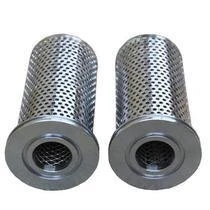 Tel:
+8618931101301
Tel:
+8618931101301
nov . 12, 2024 17:28 Back to list
gas turbine air intake filter
Gas Turbine Air Intake Filters Enhancing Efficiency and Longevity
Gas turbines play a crucial role in power generation and aviation, providing energy for everything from electricity production to aircraft propulsion. One of the key components that significantly influences the performance and reliability of gas turbines is the air intake filter. These filters are designed to prevent contaminants from entering the turbine, which can lead to operational inefficiencies, damage, and increased maintenance costs. Understanding the importance of gas turbine air intake filters is essential for optimizing turbine performance and ensuring long-term operational success.
The Role of Air Intake Filters Air intake filters serve as the first line of defense against particulates, including dust, dirt, and moisture, which can contaminate the combustion process and degrade turbine components. By capturing these contaminants, filters help maintain the cleanliness of the intake air, thereby enhancing the overall efficiency of the combustion process. Clean air facilitates better fuel combustion, which is critical for achieving optimal engine performance and reducing emissions. This is especially significant in today’s regulatory environment, where stringent emissions standards are in place.
Types of Air Intake Filters There are several types of air intake filters commonly used in gas turbines. Pre-filters are often the first layer of protection, capturing larger particles before they reach the main filter. The primary filters come in various forms, such as pleated panel filters, bag filters, and vane separators, each designed to cater to specific operating conditions and air quality requirements.
gas turbine air intake filter

Pleated panel filters are known for their high surface area, allowing for greater dust-holding capacity while maintaining low airflow resistance. Bag filters, on the other hand, can capture finer particles and are often used in applications where air quality is particularly critical. Vane separators are typically used in conjunction with other filters to enhance efficiency by separating larger droplets of water and particulates from the air stream.
Impact on Turbine Performance The efficiency of gas turbines is directly impacted by the condition of the air intake filters. When filters become clogged with dirt and debris, airflow is restricted, leading to decreased performance and increased fuel consumption. In extreme cases, a blocked filter can cause the turbine to surge or stall, resulting in costly downtime and repairs. Regular inspection and maintenance of air intake filters are, therefore, critical for optimizing turbine operation. Replacing or cleaning filters at appropriate intervals ensures that the gas turbine operates within its designed parameters, ultimately extending the lifespan of the equipment.
Innovations in Filter Technology Recent advancements in filter technology have led to the development of more efficient and durable filters. Innovations such as nanofiber technology have been introduced, offering superior filtration capabilities with lower pressure drops. These advancements not only improve the efficiency of air intake systems but also contribute to reductions in maintenance requirements, making them an attractive option for operators looking to optimize their gas turbine performance.
Conclusion In conclusion, gas turbine air intake filters are a vital component in ensuring the efficient and reliable operation of gas turbines. By preventing contaminants from entering the turbine and maintaining optimal airflow, these filters contribute significantly to overall performance, fuel efficiency, and emissions control. With ongoing advancements in filter technology, operators have the opportunity to enhance their systems further, resulting in improved performance and longevity. Investing in high-quality filters and implementing a regular maintenance schedule is essential for any operation relying on gas turbines, ensuring they can meet the demands of today’s energy and aviation markets efficiently and sustainably.
-
Working principle of high-efficiency dust filter elementNewsJun.26,2025
-
The truth about washable filters: Does repeated use really not affect efficiency?NewsJun.25,2025
-
Effect of humidity on the performance of activated carbon filter elementsNewsJun.24,2025
-
Material selection considerations for dust removal filter elements under high temperature conditionsNewsJun.23,2025
-
Cold knowledge of air filters: Why are some designed to be pleated?NewsJun.16,2025
-
Factory direct supply! High-precision air filter element wholesale and customizationNewsJun.12,2025

 Email:
Email:





